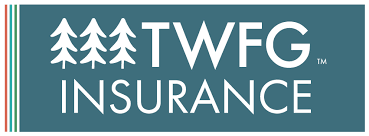Closing cost for buying a home
When buying your new home, make sure that you put some money aside for the costs that will arise when you finally complete your purchase. Costs such as legal fees, appraisals, insurance, and taxes can add up if you are not planning for them. As your real estate professionals, we can help you make a budget so that you are well prepared when your dream home becomes a reality.
Below are the costs involved when buying a home:
Appraisal Fee: When the lending institution requires an appraisal of the home before approving your loan, it is your responsibility to pay the appraiser’s fee.
Survey Fee: The lending institution may also require that a survey certificate be presented to them. The purpose of the survey is to formally establish the boundaries of the property and to ensure that all buildings are within those boundaries. If the current owner cannot provide a recent survey certificate, it will be your responsibility to pay the surveyor’s fee.
Origination Fee: This is the lender’s origination fee.
Underwriting Fee: This is a lender’s underwriting fee.
Mortgage Application Fee: Lending institutions may charge a mortgage application fee. This application fee may vary between lending institutions.
Property Tax: If the current owners have already paid the full year’s property taxes to the municipality, you will have to reimburse them for your share of the year’s taxes.
Property Transfer Tax: The British Columbia Provincial Government imposes a property transfer tax, which must be paid before any home can be legally transferred to a new owner. Most first time buyers are exempt from this tax.
Home inspection fees: Home Inspector Fees are often overlooked, but a good inspector can help you save money in the long run. Not only can a home inspector give you the peace of mind that you are buying a solid property, they can also advise you about any major repairs that will be coming up, and any regular maintenance that will help prevent issues from arising.
Mortgage Private Insurance: This type of insurance is required on most mortgage loans in excess of 75% of the appraised home value. Its purpose is to ensure that the lender will not lose any money if you cannot make your mortgage payments, and that the value of your home is not sufficient to repay your mortgage debt. The insurance premium is paid to the lender and, in most cases, is added to the loan amount and paid for over the term of the loan.
Title Policy and Legal Fees: Legal advice and assistance can help make your home transfer much smoother. Fees to consider will include the transfer of home ownership from the seller to the buyer, which must be recorded in the Land Title and Survey Authority Office. Also, if you are financing your purchase with a new mortgage loan, there will be a further fee and disbursements to prepare and register the mortgage documents.
Deposits Required by Utility Companies: Setting up a new account with a utility company can require additional fees and time off work for technicians to access your home and set up the new services.
Fire and Liability Insurance: The mortgage lender will require that you purchase an insurance policy that guarantees that, in the event of fire, the lender will receive the balance owing on the mortgage loan before you receive any insurance proceeds.
Goods and Services Tax: If you purchase a newly constructed home, you may be subject to GST on the purchase price.
Household Goods: Depending on where you are coming from–and what type of home you are buying–set aside some money for things like kitchen appliances, garden equipment, garbage cans, tools, window coverings, etc.
Life and Disability Mortgage Insurance: At your option, you may purchase insurance which will ensure that your outstanding mortgage balance is paid if you die or become disabled.
Moving Expenses: Depending on how many household items you have to move–and how far you are going–moving expenses can include: buying boxes, hiring people to pack your home, hiring movers, and renting trucks. Ask us to recommend some reputable moving companies.
Redecorating or Renovations: There will likely be a few things that you will want to add to your new home when you finally move in. These costs will vary with your taste, needs, and situation, but be sure to keep them in mind when making your budget.





